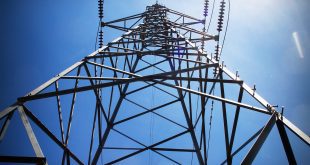Nearly everyone has driven by a commercial property in pouring rain, only to see its irrigation system in full operation.
Since many of these irrigation systems are located in urban areas, they utilize water from municipal sources — making this wasted water costly for the owner of the systems. There also are environmental issues, especially since many areas are experiencing severe shortages of fresh water.
Both factors are expected to be of increasing concern as companies continue to look for ways to tighten their budgets and address public demands to be more environmentally conscious. With increasing numbers of individuals becoming more aware of fresh water supply issues, the display of waste contributes to a negative view of the irrigation system customer. While those opinions may be of little concern to the residential customer, they can pose a significant problem for commercial irrigation customers.
New technological developments seem to be addressing both of these issues. Current irrigation control systems bear little resemblance to those that were common only a few years ago. In the past, all irrigation control systems required manual timer adjustments. Some companies are now offering self-adjusting “smart” sprinkler systems that determine their own schedules based on local weather conditions. However, some companies have taken it to a higher level, offering automatic adjustment controls to maintain optimum levels of green color with higher efficiency.
Here are a few examples:
– The XCI Cloud offered by Cyber-Rain reduces landscape water usage by 30 to 70 percent with its self-adjusting systems, according to the company. The XCI Cloud also allows homeowners, property managers and landscape contractors to directly control irrigation activities from a computer or a smartphone, using the company’s free iPhone app. The system provides data records that indicate the installation’s need for additional water at any time.
– Direct irrigation control through hand held remote control devices is offered by various companies, including Hunter Industries. The controller is meant primarily for irrigation system installers to facilitate adjustments for spray patterns and coverage, but also can be used by customers to directly control how much water is applied to their landscapes. This direct control (often facilitated by Teejet technologies) can reduce water usage without making tedious manual timer adjustments.
– Rain Master’s Internet-based control system, which requires the use of the company’s web-hosted service, is primarily designed for landscape contractors. Rain Master’s system also can be accessed through any browser using a computer or a wireless device.
As water costs increase and water supplies become more stressed in specific areas, it is likely that irrigation companies will develop even more technologically-advanced systems — giving clients cost-efficient and environmentally-conscious options to retain a green and healthy landscape.
 Alternative Energy HQ solar power for homes, wind energy, and bio fuel issues
Alternative Energy HQ solar power for homes, wind energy, and bio fuel issues






